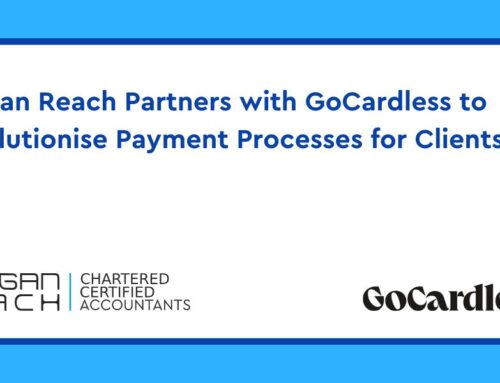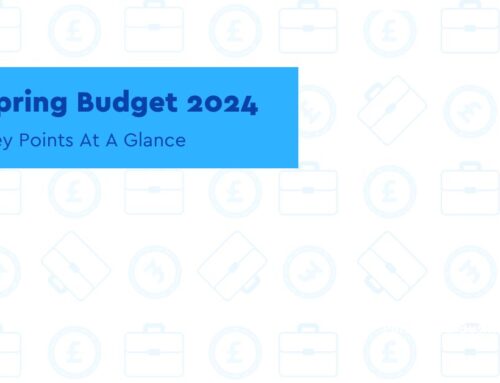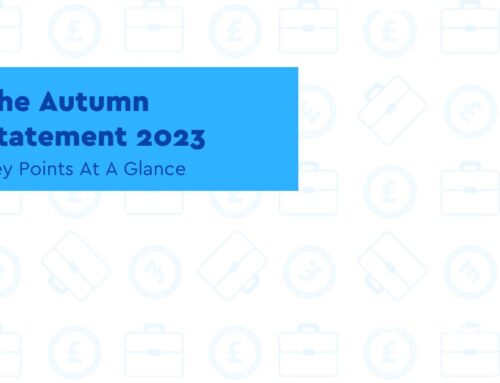News – Employer
Tell HMRC about an employee’s company car
___________________________________
April 20, 2022
Key Points
- You need to tell HMRC if you make any cars available for private use by company directors or employees
- You need to send a P46 (Car) form to HMRC if you provide company cars to your employees, stop providing a company car or provide someone with an additional car
If you are using a printed form to notify HMRC of changes affecting car benefits for your employees during the quarter to April 5, you need to do this by May 3.
You need to tell HM Revenue and Customs (HMRC) if you make any cars available for private use by company directors or employees.
‘Private use’ includes employees’ journeys between home and work, unless they’re travelling to a temporary place of work.
What to report
You need to send a P46 (Car) form to HMRC if you:
- Provide company cars to your employees
- Stop providing a company car
- Provide someone with an additional car
To send the form you can:
- Fill it in online and send a printed copy to the address on the form
- Use HMRC’s PAYE Online service for employers
- Use your payroll software
You also need to report on your end-of-year forms and pay Class 1A National Insurance on the value of the car benefit.
Replacing a company car
You need to tell HMRC if you’ve replaced a company car. You can do this by using:
- HMRC’s PAYE Online service for employers
- Your payroll software
- Your end-of-year forms
Deadlines
There are different deadlines depending on when you provide, change or stop providing the company car.
| When the change takes place | When you need to tell HMRC by |
| 6 January to 5 April | 5 April (electronic form) |
| 6 January to 5 April | 3 May (printed form) |
| 6 April to 5 July | 2 August |
| 6 July to 5 October | 2 November |
| 6 October to 5 January | 2 February |
Exceptions
You do not need to tell HMRC if you provide:
- ‘Pool’ cars, which are used by more than one employee for business purposes, and normally kept on your premises
- Cars adapted for use by employees with a disability, if the only private use is for journeys between home and work
- Emergency vehicles used only by on-call employees of the police, fire and rescue, ambulance or paramedic services
This article was sourced from gov.uk: https://www.gov.uk/tell-hmrc-company-car
News – Tax Relief
Claim Income Tax relief for your employment expenses
___________________________________
April 20, 2022
Key Points
- You must complete form P87 if you’re claiming on behalf of someone else, for multiple tax years, for multiple jobs
- If you are claiming more than the flat rate expense, you’ll need to have records and receipts
From May 7, HMRC will only accept postal claims to claim tax relief on work-related expenses using form P87.
There are, however, different ways to claim tax relief depending on your circumstances.
Claim online
Before you start
When you use this service, you’ll:
- get a reference number to use to track the progress of your form
- be able to tell us about multiple tax years and up to 5 different jobs
Include all expenses for the tax year you want to claim for. The amount shown on the service summary page is your total expenses for the year. We’ll use this to work out any relief due to you.
Gather all your information together before you start your claim.
If you’re using the service to add a new expense make sure you include anything you’ve claimed before.
If you claim an estimated amount, we’ll review it at the end of the tax year and we’ll change your tax code.
Claiming by post
You must complete form P87 if you’re claiming:
- On behalf of someone else
- For multiple tax years
- For multiple jobs, you’ll need to complete an extra form if you have more than 5 jobs
Claim by phone
You can claim by phone if you’ve already claimed expenses in a previous year and your total expenses are less than either:
- £1,000
- £2,500 for professional fees and subscriptions
Information you may need to hand when filling in the claim
Claiming more than the flat rate expense
You’ll need to have records and receipts. If your employer pays you any of the costs, deduct this from the allowable rate.
Using your own vehicle for work
You’ll need to have records of your business mileage, including:
- Locations of your journeys
- Distances you’ve travelled
- The total amount of mileage allowance payments you’ve had
Using a company vehicle for work
You’ll need a summary of your calculation with any claim for relief on what you’ve spent.
Hotel and meal expenses
You’ll need your receipts.
This article was sourced from gov.uk: https://www.gov.uk/guidance/claim-income-tax-relief-for-your-employment-expenses-p87
News – Money and Tax
Save As You Earn: COVID-19 easement ending
___________________________________
April 21, 2022
Key Points
- If employees have a savings contract in place before April 6, 2022, they remain eligible
- From April 6, 2022, if employees start a new savings contract, they will not be eligible
Usually, employees who take part in Save As You Earn (SAYE) share schemes can delay payments of monthly contributions into their linked savings accounts, for any reason, on up to 12 occasions in total without causing the savings contract to be cancelled.
During the pandemic, HMRC put an easement in place to allow employees who were furloughed or on unpaid leave because of COVID-19, to pause saving for an unlimited period.
From April 6, 2022, if employees start a new savings contract, they will not be eligible for this easement.
If employees have a savings contract in place before April 6, 2022, they remain eligible for this easement. See ERS Bulletin 41 for more information.
Regardless of when an employee started their savings contract, they will be able to delay payments of monthly contributions for any reason, on up to 12 occasions in total.
Save As You Earn (SAYE)
SAYE a savings-related share scheme where you can buy shares with your savings for a fixed price.
You can save up to £500 a month under the scheme. At the end of your savings contract (3 or 5 years) you can use the savings to buy shares.
The tax advantages are:
- The interest and any bonus at the end of the scheme is tax-free
- You do not pay Income Tax or National Insurance on the difference between what you pay for the shares and what they’re worth
You might have to pay Capital Gains Tax if you sell the shares.
You’ll not pay Capital Gains Tax if you transfer the shares:
- To an Individual Savings Account (ISA) within 90 days of the scheme ending
- To a pension, directly from the scheme when it ends
If you do not transfer your shares to a pension immediately when the scheme ends, you can still transfer them up to 90 days later. You may have to pay Capital Gains Tax if they go up in value between when you buy them and when you transfer them.
This article was sourced from gov.uk: https://www.gov.uk/tax-employee-share-schemes/save-as-you-earn-saye
News – Pension
More people paying into pensions but contributions eaten by inflation
___________________________________
April 21, 2022
Key Points
- This is a huge rise in those taking up a workplace pension from the 47% recorded in 2012 before auto-enrolment was introduced
- Inflation is currently at a 30-year high of 7% and the cost of essentials has risen
- It’s expected that pension contributions are low down the list when it comes to household finances
The number of workers paying into a pension reached 79% in April 2021, or 22.6 million employees, up on 2020s figure, according to data from the Office for National Statistics (ONS).
This is a huge rise in those taking up a workplace pension from the 47% recorded in 2012 before auto-enrolment was introduced, but there are concerns about the amount of money being put away.
The number of employees not saving into a private pension who are excluded from auto-enrolment, such as those who are self-employed or too young to be included in the scheme, also remains high.
And given the cost-of-living crisis and current soaring levels of inflation, this is predicted to impact the amount people are able to save for their retirement.
The gap in employee workplace pension participation rates between the public (91%) and private sectors (75%) was at its lowest levels during this month, which the research found was driven by increased participation in the private sector, up from 32% in 2012.
Furthermore, workplace pension participation was the lowest for private sector full-time employees earning £100 to £199 per week (43%), likely influenced by automatic enrolment (AE) earnings and age eligibility criterion. Participation was 88% for equivalent earners in the public sector.
Inflation is currently at a 30-year high of 7% and the cost of essentials has risen. Therefore it’s expected that pension contributions are low down the list when it comes to household finances.
According to the latest figures from the ONS, employee participation in workplace pensions reflects the automatic enrolment (AE) age (aged 22 years to State Pension age) eligibility; in April 2021, around 8 in 10 eligible employees had a pension compared with 2 in 10 employees aged 16 to 21 years, and 4 in 10 aged State Pension age and over.
Those earning below the trigger of £10,000 are also much less likely to be putting money away into a private pension. In the 2017 government review into the scheme, it pledged to lower the age from 22 to 18 yet this hasn’t happened yet.
This comes as the industry has been calling on the government to speed up the reforms of the policy that had been identified following the 2017 AE review – lowering the age at which workers are auto-enrolled into a pension from 22 to 18 and scrapping the £10,000 earnings threshold so lower earners are also included in the reforms.
The government had previously committed to lowering the minimum AE age to 18 and scrapping earnings bands by the “mid-2020s” following the 2017 AE review. Earlier this month, the government said it remained committed to the changes but wanted to engage further with the industry on approach and costing before implementation.
Latest Snippets
Easement ends for employee home-office expenses
Existing rules prior to the coronavirus (COVID-19) pandemic provided Income Tax and National Insurance contributions exemptions, where employers provide employees with equipment to allow them to work from home. This rule remains in place.
Prior to the pandemic, where an employee purchased the equipment and was then reimbursed by their employer, the exemption did not apply. Due to coronavirus, an easement was put in place under regulations to allow relief in situations where employers reimbursed employees buying their own office equipment to enable them to work from home during the pandemic.
This easement ended on 5 April 2022. This is because as UK government restrictions are lifted, working from home is no longer a legal requirement.
GDP growth slows over February
Economic growth slowed in February 2022 compared to the start of the year, according to the Office for National Statistics (ONS).
The latest ONS figures show that GDP rose by 0.1% in February compared to a 0.8% increase in January, in part due to a sharp drop in the production of cars and computer equipment.
Economists had expected GDP to grow by 0.3% due to the lifting of most Covid restrictions by the end of January.
Although there was a decrease in growth over February, the ONS reported that the UK economy is 1.5% above its re-COVID pandemic level in February 2020.
Alpesh Paleja, lead economist at the Confederation of Business Industry, said:
“Following the bounce at the start of the year, it’s no surprise that economic growth slowed in February. Near-term challenges to the outlook have ramped up since, with a growing cost-of-living crunch set to weigh on growth.
“It’s clear that growth impetus remains underwhelming. While the Government took some steps to sustain confidence in our economy in the Spring Statement, they don’t do enough to tackle the current challenges facing firms.”
Get In Touch
At Morgan Reach, we understand every business needs a little help now and again-especially when it comes to the financial side of things. Therefore, to help our clients and visitors we endeavour to cover as much of the business news as possible. If you are self-employed or run a business and need assistance and advice on how these news could make a difference to you or your business, feel free to get in touch with the experts at Morgan Reach. Our business growth experts at Morgan Reach will guide you through what support is available for you or your business as well as the latest news that may affect you.







